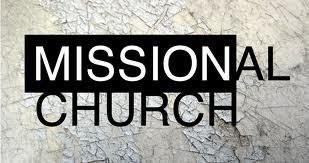According to statistics, there are a lot of “unchurched” people in the U.S. No county in the US has registered a greater percentage of church persons over the past decade. Church attendance has declined over the past few years by 10%, and the US is the only continent where Christianity is not growing. People aren’t going to church like they used to. So, we refer to them as “unchurched.”
What Does “Unchurched” Really Mean?
Over ten years ago, Robert Fuller made three major distinctions among the so-called unchurched:
- Secular Humanists
- Religious but Not Church-oriented
- Spiritual but not Religious
These distinctions, alone, are helpful in clarifying who our neighbors might be. Yet, I rarely hear church planters and missional organizations explain the unchurched in this way. Instead, “unchurched” remains an amorphous and imprecise term. Why, then, do we continue to use it?
Maybe part of the reason is we call them “unchurched” is based on a hidden, faulty ecclesiology–church equals getting people to attend a Sunday service. In many of the statistics I have examined, this is often the primary criteria for characterizing someone as unchurched. Is the mission of God to get people “into a church service”? The New Testament gives us a much thicker view of God’s mission. It runs deeper and goes further.
Why We Need Deeper Thinking on a Term
We need to go deeper before we go further in reaching the unchurched. We need to ask: “What do they (secular humanists, religious but not church-oriented, or spiritual but not religious people) think of Christianity?” Gabe Lyons & David Kinnaman’s book UnChristian was a popular step forward in taking this humble, missionary posture. To take the conversation a couple steps further, we need to understand what people think Christianity is. Truth be told, they often think of something altogether different than what we think of. As a result, a lot of gospel communication communicates something other than the gospel. For instance:
- We say “have faith”; they hear “anti-science.”
- We say “Christ”; they hear “moral example.”
- We say “cross”; they hear “arcane human sacrifice.”
- We say “Christianity”; they hear “Republican and anti-gay.”
- What are people in your part of the country hearing you say?
If we are to love people estranged from Christ and distant from the church, we need to get into their skin, listen to their stories, and begin understanding who they are. To do this, I recommend we view parts of our culture as resistant peoples.Â
Resistant Peoples
What are resistant peoples? Missiologist Michael Pocock writes: “The resistant are those who have or are receiving an adequate opportunity to hear the gospel but over some time have not responded positively (Pocock, “Raising Questions about the Resistant”). This means that the resistant are not unreached, though they are often uninterested in church. At least two of Fuller’s unchurched sub-groups could be considered resistant.
To be clear, I am not suggesting you start calling your co-workers “resistant peoples!” Though some would consider it a compliment!
Not unlike the term unchurched, defining the resistant is has its problems; however, Dr. Timothy Tennent helpfully points out that peoples can be resistant in at least four ways: culturally, theologically, ethnically or politically (Tennent, “Equipping Missionaries for the Resistant”). Depending on which area of the U.S you live in, or what sub-cultures you are ministering to, any one or a combination of these four areas may apply. A good missionary will take each one as a lens to discern what obstacles are in front of the gospel.
Conclusion
As I see it, a major challenge to reaching the resistant is to approach our Christianity with redemptive suspicion. We need to question Christianity wherever it places political, moral, and cultural obstacles in front of the gospel. For example, some Christians would insist on that a person change their political views before becoming a Christian. Or that they need to change their sexual orientation before putting faith in Jesus. We need to wisely discern which objections are legitimate among resistant peoples. Then, deconstruct defective cultural views and reconstruct biblical, gospel-centered views in areas such as politics and sexuality.
By rethinking who we are relating to (unchurched or resistant), and how we relate to them (areas of resistance and the gospel), we can remove stumbling blocks to Christ and move the mission forward. To begin, I recommend we take Tennent’s four areas–political, cultural, ethnic, and theological–and begin filling them out with specific reasons, from our contexts, as to why people are not interested in church or the gospel.



